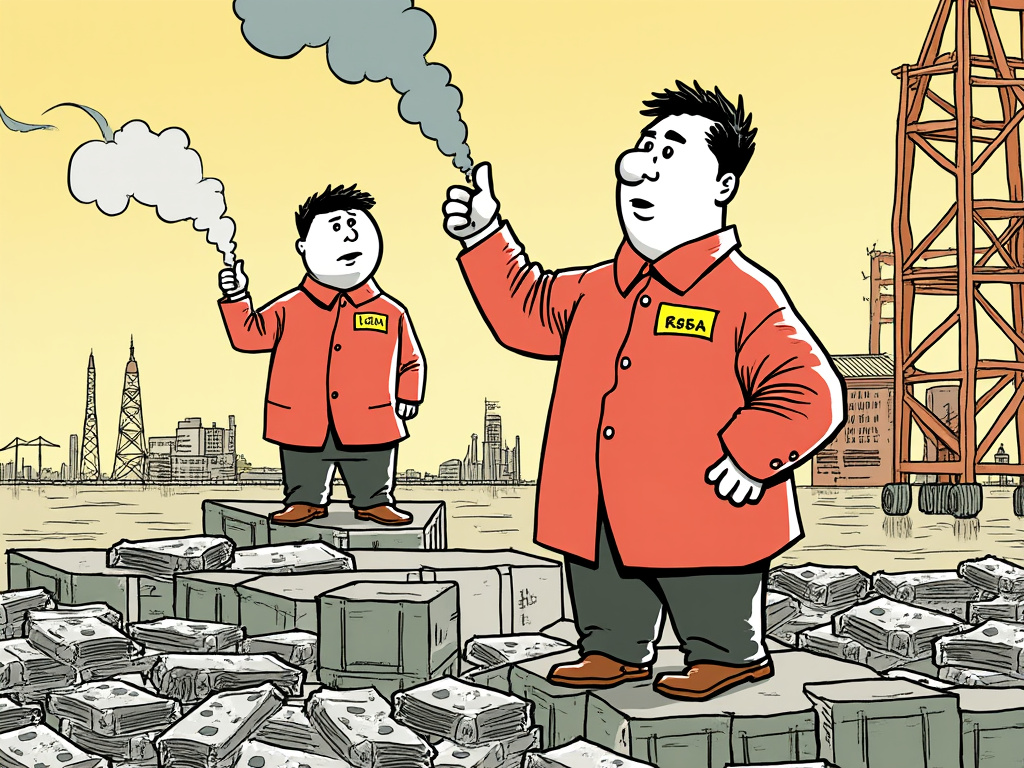As Donald Trump returns to the White House, the specter of trade tensions with China looms large, potentially signaling a revival of the tariff strategies employed during his first term. Steven Mnuchin, Trump’s former Treasury Secretary, suggested in a recent CNBC interview that tariffs would likely be a focal point in negotiations with China. This approach stems from the belief that such measures are necessary to bring China back to the negotiation table, particularly in light of the unfulfilled commitments from the 2020 Phase One trade agreement.
The Phase One Agreement: A Retrospective
The Phase One deal, signed at the dawn of 2020, was meant to ease the trade war that had escalated under Trump’s initial presidency. It required China to increase its purchases of American goods and services by at least $200 billion over two years. However, the global economic disruptions caused by the COVID-19 pandemic significantly hampered China’s ability to meet these targets. Despite this, Mnuchin’s comments indicate a readiness to revisit and possibly enforce these commitments through strategic tariff impositions.
China’s Perspective on Trump’s Return
Chinese President Xi Jinping, known for his strategic patience and long-term planning, has navigated through Trump’s unpredictability in the past. Here’s how China might view and react to Trump’s tariff-centric approach:
- Strategic Retaliation:
- China has previously retaliated against US tariffs by imposing its own on American goods, particularly targeting agricultural products from states that are political strongholds for Trump. If tariffs are reintroduced, Beijing might again use this tactic, aiming to influence US domestic politics by affecting key voter bases.
- Economic Diversification:
- Aware of the risks posed by US tariff policies, China has been pushing for greater economic independence. This includes accelerating the “Made in China 2025” initiative, which focuses on upgrading its manufacturing capabilities and reducing reliance on Western technology and markets. Trump’s policies might accelerate this push towards self-sufficiency.
- Diplomatic Maneuvering:
- Xi might seek to strengthen ties with other global players, particularly in Asia, Europe, and the Global South, to diversify China’s international relations and reduce the impact of US economic pressure. This could involve deepening integration with regional trade blocs or enhancing the Belt and Road Initiative’s scope.
- Negotiation Leverage:
- While China has shown resilience against external economic pressures, Xi could use the prospect of compliance with previous trade agreements as leverage in broader geopolitical negotiations, potentially offering concessions in areas like technology transfers or market access in exchange for tariff relief or other economic benefits.
- Public and Nationalist Response:
- Domestically, Xi would need to manage public perception. While China has largely kept anti-American sentiment in check, a new round of tariffs could stoke nationalist fervor, requiring Xi to balance between showing strength and maintaining economic stability.
Tariffs with Strategy
Mnuchin emphasized the strategic use of tariffs, suggesting that they should not lead to widespread inflation. This implies a nuanced application where exemptions might be considered for critical imports, as was done previously. Such a strategy could mitigate some of the negative impacts on US businesses while still exerting pressure on China.
Looking Forward
As Trump prepares for his second term, the dynamics of US-China trade relations will be pivotal. China, under Xi’s leadership, will likely approach this scenario with a mix of defensive economic policies, diplomatic outreach, and strategic retaliation. The global economic landscape, still recovering from the pandemic, will watch closely as these two economic giants navigate their complex relationship, potentially reshaping international trade norms in the process. Whether this leads to a new era of cooperation or confrontation remains to be seen, but it’s clear that tariffs will play a significant role in this geopolitical chess game.



